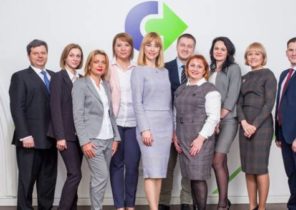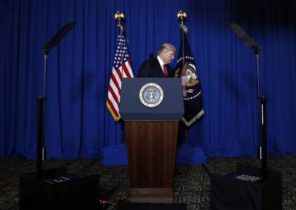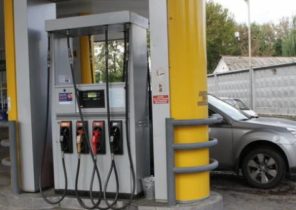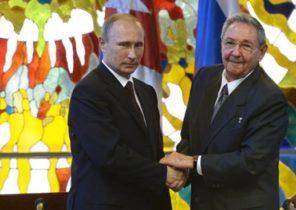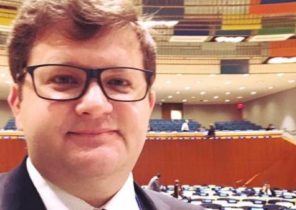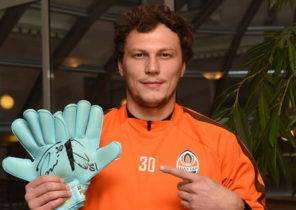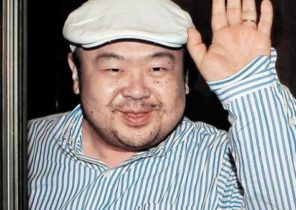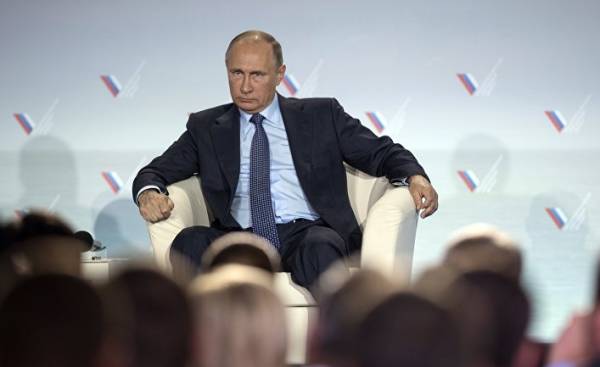
Despite the show of force and charm of the Russian President Vladimir Putin, his power starts to become obsolete. Russia faced the threat of the protest movement against Putin’s system, and he responded with brutal repression and vigorous public speaking. The Kremlin’s message is transparent: Putin is a strong leader and a man of the people. But this bike, like patriotism, caused by the annexation of Crimea, begin to lose their novelty, and a reckoning may loom on the horizon. This is referred to in the material, American intelligence-analytical company Stratfor, which is in the order of “Apostrophes”.
Even before the coming to power of Vladimir Putin and his elites have shaped the history of the Russian leader. According to their version, during the presidency of Boris Yeltsin, Putin has brought the state out of the chaos, pushing away a group of recalcitrant politicians. As head of the Federal security service (FSB), and later Prime Minister, Putin reined in the wayward regions, with troops suppressed the rebellion in the Caucasus. Peres to the presidency in 2000, he consolidated power, displacing dissent oligarchs and returning to the state strategic and profitable assets. Putin began to rebuild and reorganize the military services and security services, making them the key tools. He would cleanse the political system from disloyal parties and politicians. In General, during the first Putin’s presidency Russia has become stronger and more stable country, and respect for him from people growing. The Kremlin’s message was clear: Putin saved Russia.
Based on the created system and the support of the overwhelming majority of people, Putin has become Russian muscles on the international level. In 2006, he stopped (at the time — approx. ed.) the supply of energy to Ukraine and Europe. In 2007, Putin delivered an aggressive speech at the Munich security conference in Germany, condemning the global dominance of the US and its “excessive use of force”. Soon Russia withdrew from the Treaty on conventional armed forces in Europe, and in the following year, Russia invaded Georgia. The Kremlin has signaled that Putin has restored the power and position of Russia in the world.
But the return of Russia on the global stage was met with strong resistance from the West and many former Soviet States. The West resisted meddling in Russian Affairs; in Ukraine, protests erupted and the conflict; the United States and the European Union have imposed sanctions; NATO has deployed forces near Russia’s borders. The Kremlin responded with nationalist and Patriotic rhetoric to rally Russians around Putin, who was represented by the defender of the Motherland. This patriotism has reached the highest degree at the time of the annexation by Russia Ukrainian Crimea.
The song is outdated
Now this promise is starting to crumble, as the Kremlin and Putin have faced many crises. The West has relied on economic pressure, and Russia fell into recession due to low oil prices. The Russian elite believe that they lose money and have fewer opportunities for visible consumption. The reduction of the “pie” led to a struggle for power, money and assets that Putin has created a dangerous situation, indeed, among his loyal subjects he chooses someone who has succeeded, or survived. The Russian people, the recession has affected more than the state and its elite. Unemployment and unpaid wages grow, as well as the level of poverty. After the Russian retaliatory sanctions, the cost of food rose sharply. Most average and poor Russians are spending half their income on food.
During previous economic and social crisis under Putin, the Kremlin urged the country to remember the riots of the 1990-ies under Yeltsin — frightening for Russians future and see what the latest crisis was not so bad. But the message could exhaust yourself, because in Russia there was a change of generations. About a quarter of Russians were born after the collapse of the Soviet Union, and those who are now in adolescence, or who only recently got over 20, but I know Putin as their leader. Memories of the chaos of the 1990-ies and the idea of Putin as the Savior begins to melt.
At that time, as the old narrative seems empty much of the new generation, most young people are not anti-Putin or wildly liberal, but they want to have a diverse, responsive political system.
Opposition leader Alexei Navalny has used a growing movement of disaffected youth due to its message about the fight against corruption, which should include the reform of political structures, the cleaning of government, providing economic support and legitimacy of the electoral system. Bulk creates a platform in order to lead a new generation, tens of thousands of people who joined the protests on June 12 in 150 cities of Russia. Most of the demonstrators were young people. They stir the social network, which the Kremlin is struggling trying to control.
Power and PR
The Kremlin’s reaction to the growing resistance was double. First, she became creative at the expense of the public image of Putin. The perception of the Russian President in recent weeks is skillfully deployed not only for Russians, but for the entire world. Secondly, the Kremlin has seized power stranglehold.
To this end, Putin continues to translate the leadership of Russia in a deeply autocratic model based on his personal power. He formed his own guard of 400 thousand sverhloyalna soldiers (National guard of Russia — approx. ed.) that are directly subordinated to him. The Russian state Duma adopted draconian laws that treat dissidents as terrorists and heavily regulate social media and communications. Putin got rid of some of the most powerful elites in the Kremlin. Almost a thousand people were detained in Moscow and St. Petersburg during the recent protests. Russia does not refuse from his intense confrontation with the West. The Kremlin continues to support military intervention in Syria and Ukraine, is stepping up its armed forces along its borders, continues to spread propaganda and disinformation and spoil the talks on such hot issues as North Korea.
Simultaneously, Putin launched an unusual promotional tour for a few months before he goes for re-election, trying to create a more positive and believable opinion of himself. May 10, he invited Western journalists to see how it plays in ice hockey. Before that, he gave an unexpected and unusual interview with CBS News, laughing over the charges of meddling in elections in the United States and participation in the dismissal of FBI Director James Komi. At this time, the Minister of foreign Affairs of Russia Sergey Lavrov and Russia’s Ambassador to the U.S. Sergey Kislyak met with us President Donald trump at the White house, despite the barrage of accusations of Russian interference in American elections. Russian diplomats exuded warmth and smiles. In addition, it seems that the only photographer in the room was an employee of Russian state media, so that Russia could create the perception that meeting.
Putin’s media tour to the West continued a few weeks later. The head of the Kremlin in early June, gave an interview to the journalist of NBC Megyn Kelly on the sidelines of the Russian economic forum in St. Petersburg. Many Putin seemed charming when he set out the reasons for which Russia allegedly is not the evil it draws the American press.
But the most important event was the documentary in four parts American Director Oliver stone, who for more than three years and Putin spent some interviews. “Interview with Putin” became a rare opportunity to peek under Putin’s skin. As a rule, his personal and professional life behind the scenes, except in those rare cases where coverage is organized by Putin. Stone had a close access to Putin, although the President’s conditions. Putin cleverly retold the history of the cold war from the point of view of Moscow, casually alluding to the US aggression against the USSR. Speaking about the United States, he used the word “partner” demonstrating Moscow’s willingness to work with Washington that does not want to.
Documentary flavored shots as Putin drives, exercising, playing hockey, riding horses, talks about grandchildren and making fun of a stone — the result humanizes a figure of one of the richest and most corrupt members of the elites of the world. In the interview, Putin tried to present Russia as a part of world history and to show that the country and its people in the world play an important role.
History repeats itself
Combining strong leader with charm and the open message, Putin seeks to extend the life of his administration. He’s not ready soon to give up power, and he has no succession plan in the foreseeable future. Double message leaves the Kremlin room for maneuver to change tactics when necessary. The Kremlin is not blind, he sees occurring around him challenges: alternation of generations, the growing protest movement, the struggle in the Kremlin elite, a stagnant economy and Western pressure.
Russia faced similar problems in 1905 by Tsar Nicholas II and the era of General Secretary Leonid Brezhnev 1964-1982 years. Both of these ruler kept in power for decades after their crises, ranging between repression and concessions. But in both cases, Moscow has lacked options, it was launched reforms that broke the system. At the moment, the problem is not enough to break the Putin administration, but the storm is brewing.
